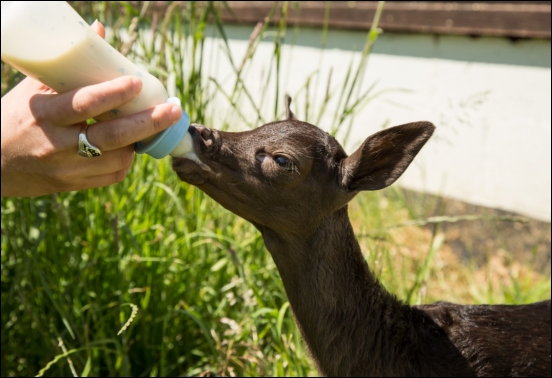Two very special orphans have been given a second chance thanks to the work of a wildlife charity’s carers near Burnham-On-Sea.
The two fallow fawns were rescued separately in the summer and were brought to Secret World Wildlife Rescue in East Huntspill where they have been hand-reared by dedicated Animal Carer Josie Nott, and have just taken their first steps towards life back in the wild this month.
Fallows are usually a chestnut brown colour with white spots – but the two friends, named Devon and Angus, are rather unusual.
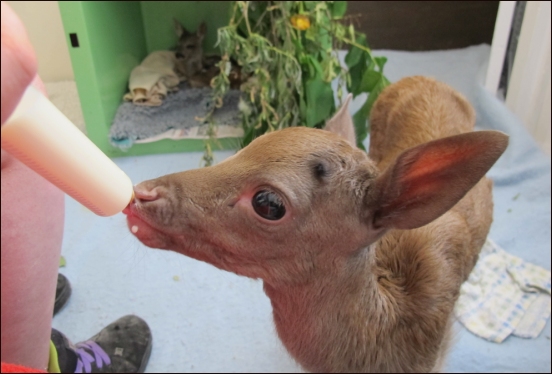
Devon is an ‘erythristic’ fallow which means her fur has a reddish pigmentation. The ginger fawn was rescued after her mother was tragically killed by dogs. She was first cared for at Blueberry Warren animal rescue in Devon, and then moved to Secret World where there are specialist fawn facilities.
Josie told Burnham-On-Sea.com: “When I first saw her, little Devon was so skinny I didn’t think she’d survive.”
Devon joined Angus, a fellow fallow who was discovered a few days before, abandoned in a ditch with steep banks. Sadly his mother did not return, so he was rescued by the RSPCA who brought him to Secret World. He was just four days old.
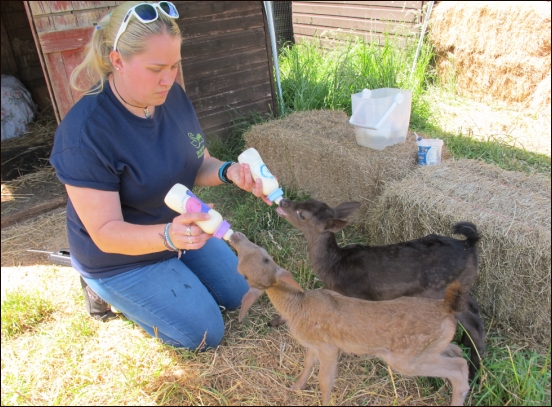
Angus is a ‘melanistic’ fallow. This is a more common colour variant than Devon’s and gives his fur a much darker colour than most others of his species. Like his ginger friend, the characteristic white spots on Angus’ back are far less obvious.
At Secret World, the two orphans could mix with other rescued fawns. “It’s really important that they have company,” added Josie, “since they are difficult to rear and they do much better together.”
Angus and Devon needed a lot of time and attention. “At first I was feeding them every couple of hours, day and night, with a lamb milk replacement,” said Josie.
“They also had browse right from the start – that’s natural vegetation they would eat in the wild, like willow and rose – and grated apple.”
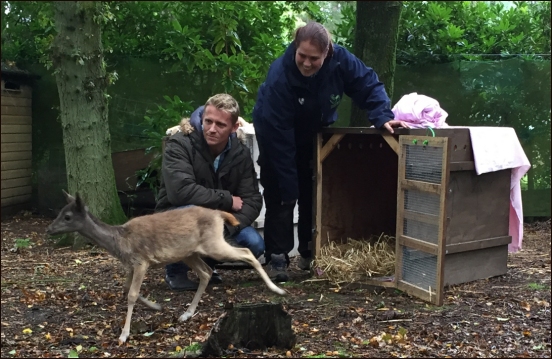
“People might be surprised to know that we gave them a bowl of soil too! In the wild they eat soil from very young, for the minerals. After a few weeks we moved them to a secure outdoor enclosure, and they stopped bottle feeding at around three months old as I gradually increased their solid food.”
She added: “I live on site at Secret World so I was able to give them the care and attention they needed. It’s important to have a close bond with them and develop trust, so I was their main carer although I have had some help! Fallow fawns follow their mothers everywhere, so they tended to follow me around when I was in their pen. This does mean they could feel a bit stressed when I left them, as they are not used to being left alone in the wild.”
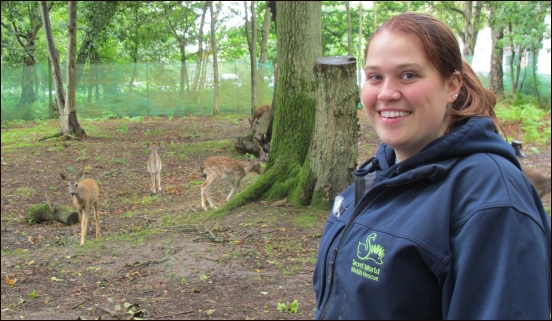
The fawns have needed regular veterinary checks and have been closely monitored. Any changes to their care are made gradually, as sudden changes in their diet or environment can cause them stress and sickness. This means only those with specialist knowledge and facilities should attempt to rescue and care for orphaned fawns.
“There are big differences between how different deer species care for their young, and not every case is the same,” said Josie.
“For example, roe fawns are sometimes left alone by their mothers who will return later. We encourage anyone who finds a fawn alone to call us for advice as we have specialist experience and knowledge and can give you advice.”
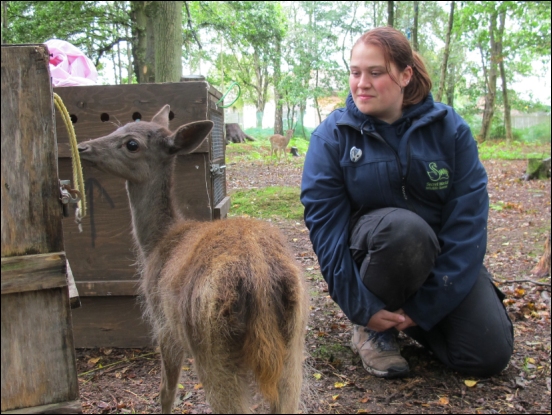
When the fawns were almost four months old it was time for Josie to say goodbye. “Our aim at Secret World is always to return rescued orphans back to the wild as soon as they are big enough,” Josie explained.
“We found a wonderful site for them where they have the run of a large wooded paddock. The landowners are fawn experts, and they have other rescued fawns for Devon and Angus to socialise with.”
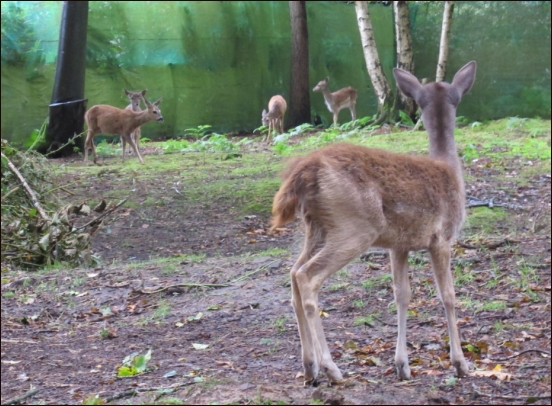
“This is a ‘soft release’, which means that the fawns will spend time in this larger enclosure for a few months until they are big enough, then the fence will be removed and they will be free at last!”
“The landowners will continue to leave food for the fawns for a while, so they are supported while they learn to make their own way in the wild.”
The day the fawns went to their new home was truly special for Josie. She told Burnham-On-Sea.com: “This is why we wildlife rescuers do what we do. All the hard work and sleepless nights have been worth it to see Angus and Devon take this big step towards life in the wild where they belong. I’m so proud of them!”

